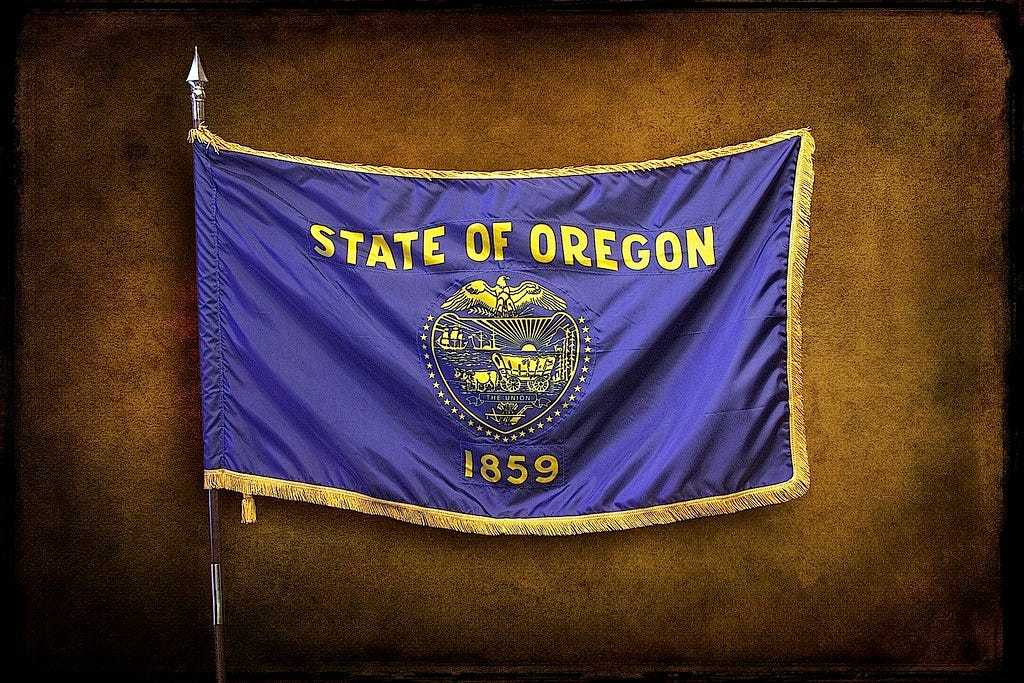Community-Based Solutions are the Future of Human Services in Oregon
Ben Sand calls on Oregon's next governor to majorly reform the state Department of Human Services
This piece is a part of our #GovernorGoals series, which for June, asks contributors to write what they think Oregon’s next governor should do to tackle poverty and income inequality. Learn more about it here. Look forward to July’s GovGoal on PERS.

One out of every four Oregonians (over 1 million people) are a client of Oregon’s Department of Human Services (ODHS).
Whether it is seeking financial support through Temporary Assistance for Needy Families (TANF), asking for help in putting food on the table by accessing the Supplemental Nutritional Assistance Program (SNAP), or working with a state case worker for help with employability, disability services, or allegations of abuse or neglect—countless Oregonians connect with ODHS. The women and men of the agency who serve individuals and families are public servants, and they should be honored for their work.
However, these civil servants are running exhausted systems that have been architected one statute, administrative rule, or policy option package at a time. While this is how government gets built, the system is not working nearly as well as it could--and they all know it. As we prepare to elect a new governor this fall, now is the time to discuss how our communities can partner with the state government to reimagine human services for Oregonians in crisis.
I’ve watched the ODHS Director, Fariborz Pakseresht, spend the last few years yearning for a real shot to redesign the system. His mission is personal for you, me, and all our neighbors. We should have a vested interest in electing a candidate with a vision for partnering with Fariborz--and the nearly 10,000 people who work at ODHS--to reimagine the agency’s work.
I admire Fariborz. He loves those around him with excellence, and he has a transformative vision for how the agency he leads could think sci-fi to restructure and redesign how the state serves those in need.
This election will include great debates about agency accountability and oversight. I imagine all three gubernatorial candidates will have critiques of states agency outcomes. In the case of many specific agencies and their leaders, critique is warranted. In the case of ODHS: it’s not. What ODHS needs is a mandate for redesign from the next Governor and the resources allocated by the legislature to get it done.
Fariborz is the man to do it, but he’s going to need help from Oregonians to get it done.
I’m inspired by the increasing desire to create feedback loops between the state and community members with lived experience, and the organization I work for, The Contingent (www.thecontingent.org), has signed up to partner with ODHS to lead this effort when considering the complexities of the child welfare system’s impacts on children and families.
Nearly 40,000 calls are made each year to the child abuse hotline in Oregon, and far too many kids end up getting removed from their parents and placed in foster care. What if we designed a solution where the community took responsibility to preventatively care for their neighbors instead of placing the onus solely on ODHS? It’s time for us to think this way, and the agency is prepared to invest in these types of community-driven solutions.
Over the next year, we will be engaging with clients of ODHS to ask the question: when a suspicion of abuse or neglect came to your house, what did you need to stabilize and flourish? As we get answers from community members, the next step will be to foster a community response where we all hold one another accountable. We can’t allow ourselves to think this is a government problem with only a government solution.
We should be asking Tina Kotek, Betsy Johnson, and Christine Drazan to sign up for this vision with us. ODHS and The Contingent can’t move the needle without the Governor’s support, so as the debate season commences this fall, let’s have a conversation about human services with the candidates, ODHS staff, and invested community members at the table. The accountability isn’t just with Fariborz and his staff. No: the accountability rests with all of us.
I look forward to hearing how our next governor will sit at the table and ask for human solutions. We know the problems exist, and it’s going to take political leadership at the top for a new system to emerge in the next four years.
We, the people of Oregon, are responsible to elect a compassionate and innovative leader because we are all in this together.
